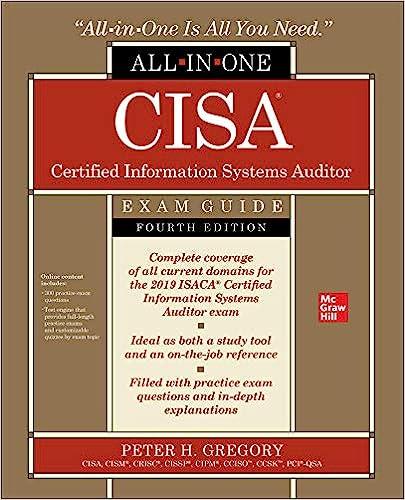



Overhead Analysis and Preparing Schedules of Cost of Goods using Excel's SUM and Basic Math Functions Stanford Enterprises has provided its manufacturing estimated and actual data for the year end. The Controller has asked you to compute the predetermined overhead rate, the schedule of cost of goods manufactured, and the schedule of cost of goods sold. Use the information included in the Excel Simulation and the Excel functions described below to complete the task. Cell Reference: Allows you to refer to data from another cell in the worksheet. From the Excel Simulation below, if in a blank cell, "=E5" was entered, the formula would output the result from cell E5, or $275,000 in this example. Basic Math functions: Allows you to use the basic math symbols to perform mathematical functions. You can use the following keys: + (plus sign to add),- (minus sign to subtract), * (asterisk sign to multiply), and / (forward slash to divide). From the Excel Simulation below, if in a blank cell"=E6+E7" was entered, the formula would add the values from those cells and output the result, or 52,760 in this example. If using the other math symbols the result would output an appropriate answer for its function. SUM function: Allows you to refer to multiple cells and adds all the values. You can add individual cell references or ranges to utilize this function. From the Excel Simulation below, if in a blank cell "=SUM(E10, E11,E12)" was entered, the formula would output the result of adding those three separate cells, or 1,214,050 in this example. Similarly, if in a blank cell "=SUM(E10:E12)" was entered, the formula would output the same result of adding those cells, except they are expressed as a range in the formula, and the result would be 1,214,050 in this example. X5 Cost of Goods Manufactured and Cost of Goods Sold - Excel ? o FILE HOME INSERT PAGE LAYOUT FORMULAS DATA REVIEW VIEW Sign In Calibri 11 A A % H Paste BIU- - A - Alignment Number Cells Editing Conditional Format as Cell Formatting Table Styles Styles Clipboard Font A1 f Stanford Enterprises uses job-order costing. E F G H B D 1 Stanford Enterprises uses job-order costing. 2 The allocation base for overhead is direct labor hours. FILE HOME INSERT PAGE LAYOUT FORMULAS DATA REVIEW VIEW Sign In Ruler Formula Bar 100 Gridlines Headings Normal Page Break Page Custom Preview Layout Views Workbook Views Zoom 100% Zoom to Window Macros Selection Zoom Macros Show A A1 X for Stanford Enterprises uses job-order costing. E E F G H A B D 1 Stanford Enterprises uses job-order costing. 2 The allocation base for overhead is direct labor hours. 3 3 4 Data for the year just ended: 5 Estimated total manufacturing overhead cost 6 Estimated total direct labor hours 7 Actual total direct labor hours $ 275,000 25,000 27,760 8 9 Actual costs for the year: 10 Purchase of raw materials (all direct) $375,000 11 Direct labor cost $536,300 12 Manufacturing overhead costs $302,750 13 14 Inventories: Beginning Ending 15 Raw materials (all direct) $ 15,000 $ $ 11,375 16 Work in process $ 27,875 $ 22,350 17 Finished goods $ 34,600 $ 26,450 18 19 Use the data to answer the following. 20 21 1. Compute applied overhead and determine the amount of underapplied or overapplied overhead: 22 Actual manufacturing overhead cost 23 Predetermined overhead rate 24 Actual direct labor hours Sheet1 READY 0004 FILE HOME INSERT PAGE LAYOUT FORMULAS DATA REVIEW VIEW Sign In Ruler Formula Bar 100 Gridlines Headings Normal Page Break Page Custom Preview Layout Views Workbook Views Zoom 100% Zoom to Window Macros Selection Zoom Macros Show A1 X fac Stanford Enterprises uses job-order costing. G H B D E F 21 1. Compute applied overhead and determine the amount of underapplied or overapplied overhead: 22 Actual manufacturing overhead cost 23 Predetermined overhead rate 24 Actual direct labor hours 25 Manufacturing overhead applied 26 27 Underapplied (overapplied) manufacturing overhead 28 29 2. Prepare a schedule of cost of goods manufactured: 30 31 Stanford Enterprises 32 Schedule of Cost of Goods Manufactured 33 Direct materials 34 Raw materials inventory, beginning 35 Add: Purchases of raw materials Total raw materials available 37 Deduct: Raw materials inventory, ending 38 Raw materials used in production 39 Direct labor 40 Manufacturing overhead applied to work in process 41 Total manufacturing costs 42 Add: Beginning work in process inventory 43 44 Deduct: Ending work in process inventory Sheet1 36 READY 0004 FILE HOME INSERT PAGE LAYOUT FORMULAS DATA REVIEW VIEW Sign In Ruler Formula Bar 100 Gridlines Headings Zoom 100% Zoom to Window Macros Normal Page Break Page Custom Preview Layout Views Workbook Views Selection Show Zoom Macros A1 for Stanford Enterprises uses job-order costing. B D E E F G H 41 Total manufacturing costs 42 Add: Beginning work in process inventory 43 44 Deduct: Ending work in process inventory 45 Cost of goods manufactured 46 47 3. Prepare a schedule of cost of goods sold. 48 49 50 Stanford Enterprises Schedule of Cost of Goods Sold 51 52 Finished goods inventory, beginning 53 Add: Cost of goods manufactured 54 Cost of goods available for sale 55 Deduct: Finished goods inventory, ending 56 Unadjusted cost of goods sold 57 Underapplied (overapplied) overhead 58 Adjusted cost of goods sold 59 60 61 62 Sheet1 READY 0004










